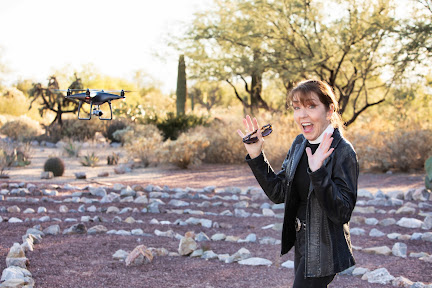Matthew 11:2-11 When John heard in prison what the Messiah was doing, he sent word by his disciples and said to him, “Are you the one who is to come, or are we to wait for another?” Jesus answered them, “Go and tell John what you hear and see: the blind receive their sight, the lame walk, the lepers are cleansed, the deaf hear, the dead are raised, and the poor have good news brought to them. And blessed is anyone who takes no offense at me.”
As they went away, Jesus began to speak to the crowds about John: “What did you go out into the wilderness to look at? A reed shaken by the wind? What then did you go out to see? Someone dressed in soft robes? Look, those who wear soft robes are in royal palaces. What then did you go out to see? A prophet? Yes, I tell you, and more than a prophet. This is the one about whom it is written,
‘See, I am sending my messenger ahead of you,
who will prepare your way before you.’
“Truly I tell you, among those born of women no one has arisen greater than John the Baptist; yet the least in the kingdom of heaven is greater than he.”
Reflection What are we hoping against hope will arise in the wilderness of our lives today? What are we looking for ? An apocalyptic fix by an autocratic messiah king wielding power from an imperious precipice, bursting onto the scene with grandstanding performances? Or a humble servant silently birthing the Spirit of the living God in our unguarded hearts, one person at a time?
According to the Jewish scholar, rabbi and physician Maimonides, who is to Judaism what St. Thomas Aquinas is to Christianity, belief in the eventual coming of a messiah is a fundamental part of Judaism. Maimonides describes the messiah, the “one who is to come,” this way. “A king shall arise from among the House of David, studying Torah and occupied with commandments like his father David… and he will impel all of Israel to follow it and to strengthen breaches in its observance, and will fight God’s wars, this one is to be treated as if he were the anointed one. If he succeeded and built the Holy Temple in its proper place and gathered the dispersed ones of Israel together, this is indeed the anointed one for certain, and he will mend the entire world to worship the Lord together…”https://en.wikipedia.org/wiki/Messia
Rumors must have been rampant about Jesus’ mind-bending mountaintop sermon proclaiming the poor and the hungry are blessed, the meek who understand their place in God’s kingdom are happy and those who are just and sincere are satisfied. (Matt 5.1–11) Waiting in prison and hearing about “all the things” that Jesus was doing; giving sight to the blind, restoring the lame to walk, cleansing the lepers, healing the deaf and raising the dead, John the Baptist had to be scratching his beard in bewilderment. How does Jesus conform to a messiah’s job description?
To make matters even more muddled, some of the things Jesus says are flatly offensive. “Unless your righteousness exceeds that of the scribes and Pharisees (that would be the religious Jews) you will never enter” God’s kingdom. (Matt 5.20) What? Are not the religious people guaranteed a fast pass to the kingdom? After all, they are the people with temple privileges, the ones who enforce and piously follow the letter of the law. No wonder John is perplexed and sends his disciples to ask Jesus, “Are you the one who is to come?” (see below)
Here is the thing. Jesus does not come to fulfill the letter of the law. He comes to fulfill the Spirit of the law. “You have heard it said, you shall not murder…but I say to you if you are angry with a brother or sister you will be liable to judgement…” (Matt5.21–22) “You have heard it said, an eye for and eye and a tooth for a tooth, but I say… give to anyone who begs from you…” (Matt 5. 38,42) “You have heard it said that you shall love your neighbor and hate your enemy, but I say to you love your enemies and pray for those who persecute you…” (Matt 5.43–44) Give your charitable gifts anonymously. Uphold your position of power with mercy and integrity. Speak truth and treat all people with dignity. Be humble rather than make a display of what a righteous religious person you are. (Matt 6.1–11)
From the point of view of John and the religious Jews of his time, Jesus does not fit the messiah’s job description.This remains true today. Although many Jews understand Jesus to be an exemplary prophet, he fails to gather the “dispersed ones of Israel together,” therefore Jesus cannot be the anointed one. To date Jesus fails “to mend the entire world to worship the Lord together.”
To make matters even worse, Jesus offends the keepers of the law, the religious people, calling them hypocrites, “For you clean the outside of the cup and the plate, but inside (you) are full of greed and self-indulgence.” (Matt 23. 25) “You are like whitewashed tombs, which on the outside look beautiful, but inside they are full of the bones of the dead and all kinds of filth. So you also on the outside look righteous to others, but inside you are full of hypocrisy and lawlessness.” (Matt 23.28) Jesus is exposing the superficial way overtly pious religious folk adhere to the letter of the law but miss the mark by failing to follow the spirit of the law. (Sound familiar?)
The one whom John baptized in the river Jordan, the one whose sandals John is not worthy to tie, the one upon whom the Spirit of God descends, the “one who is to come” and bring the “kingdom of heaven near” appears to be the unorthodox healer, preacher, dissident, Jesus who comes to reform, not replace the Jewish tradition. But John’s expectations about what the messiah’s success should look like prevent him from recognizing Jesus’ status quo shattering presence and consciousness bending invitation to change.
Which begs the question; What expectations, beliefs or preconceived notions make us deaf and blind and unreceptive to the”one who is to come?” What are we hoping against hope will arise in the wilderness of our lives today? What are we looking for this Advent season? An apocalyptic fix by an autocratic king wielding power from an imperious precipice, bursting onto the scene with grandstanding performances? Or a humble servant silently birthing the Spirit of the living God in our unguarded hearts, one person at a time?
If you find this post to be meaningful please share by clicking on icons below. Thank you.









